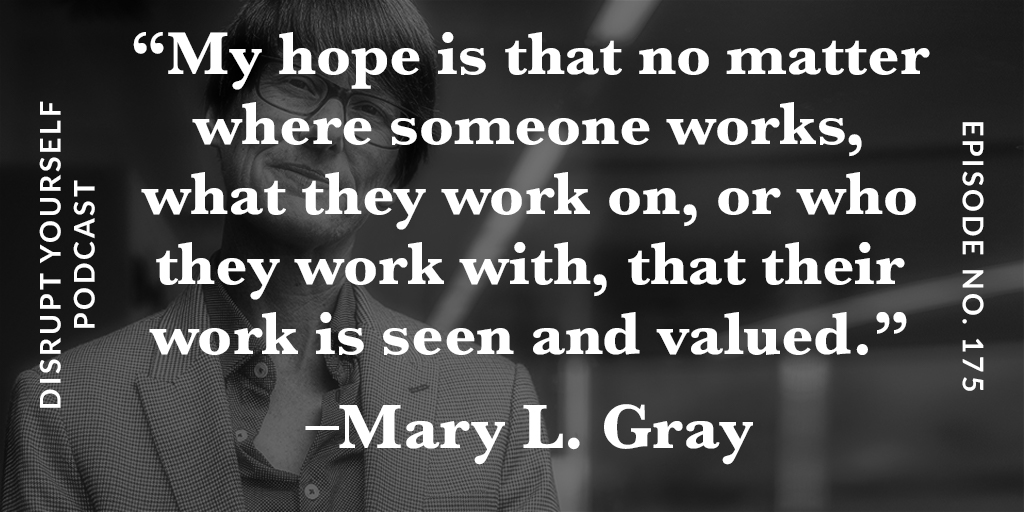Open google, type a word or a phrase, any phrase… red car, modern couch, dog, and a slew of results will populate your browser window. Who is responsible for the avalanche information that lies just a few keystrokes away? Are there downsides to this world of information accessibility?
Our guest this week, Mary L. Gray lives to answer these questions and attempts to do so in her new book, Ghost Work: How to Stop Silicon Valley from Building a New Global Underclass. The book, written with co-author Siddharth Suri, tackles explaining the new and ever-changing workforce responsible for captioning photos, flagging and removing inappropriate content, or even writing, designing or coding a project to move it along. Mary and Siddharth explore the lives of these workers – ghost workers – exposing a world marked by low pay, no benefits and wildly unpredictable income.
An estimated 8 percent of Americans have worked at least once in this “ghost economy,” and that number is growing.
Considering the increased visibility of people through social media platforms, it seems almost inconceivable that the same technology could render so many invisible. This un-intended consequence is expansive, spurring a new form of a digital gig economy that is comprised of invisible workers.
Mary L. Gray is a Senior Principal Researcher at Microsoft Research and Faculty Associate at Harvard University’s Berkman Klein Center for Internet and Society. Along with her research, Mary teaches at Indiana University, maintaining an appointment as an Associate Professor of the Media School, with affiliations in American Studies, Anthropology, and Gender Studies.

Listen to the episode in the player below, or download and enjoy it Apple Podcasts. If you’re so inclined, please leave us a review!
Takeaways from this episode:
- What is Ghost Work? Mary and her co-author Siddharth desired to accurately communicate the new phenomena they discuss in the book. Ghost Work is meant to describe work conditions, where the value of a person’s contribution to a task or project is not simply devalued, but it is literally erased from what we as an end consumer experiences.
- How does technology influence us? Mary reveals to us how dependent our relationship with technology is on where we live and our socioeconomic condition. Those who live in rural America will have less technology, such as high-speed internet, available to them thus limiting their opportunities.
- The evolution of employment has outgrown worker safety nets. Labor laws were birthed out of the 1930 and 1940s factory work era. Although these were meaningful for the time in which they were created, the nature of employment has evolved. Mary points out that many people now earn income in knowledge-based project work, where health benefits and unemployment insurance are nonexistent.
- The definition of secure employment has changed. Implicitly, we believe that the full-time employee is the secure employee and the contract employee is not. Mary challenges this belief and shares that the new reality is anything but. According to Mary and her co-author’s research, there is often no measurable difference between the two.
- How should business owners and entrepreneurs respond? Mary challenges business owners to consider the point of view of their employees / contract laborers. Ask yourself, how would I want to be treated in their position? What type of employment security would I desire for myself or for a family member?
Links mentioned in this episode:
- Mary L. Gray – Website | Twitter
- Ghost Work: How to Stop Silicon Valley from Building a New global Underclass
- More about the book – Ghostwork.info

